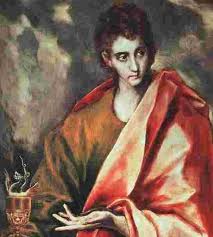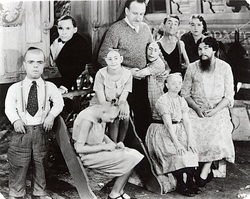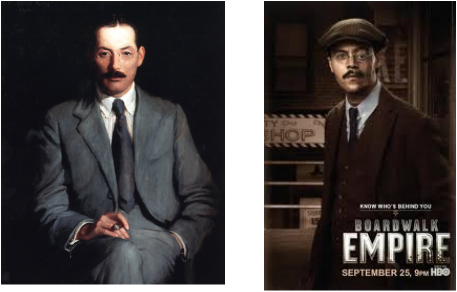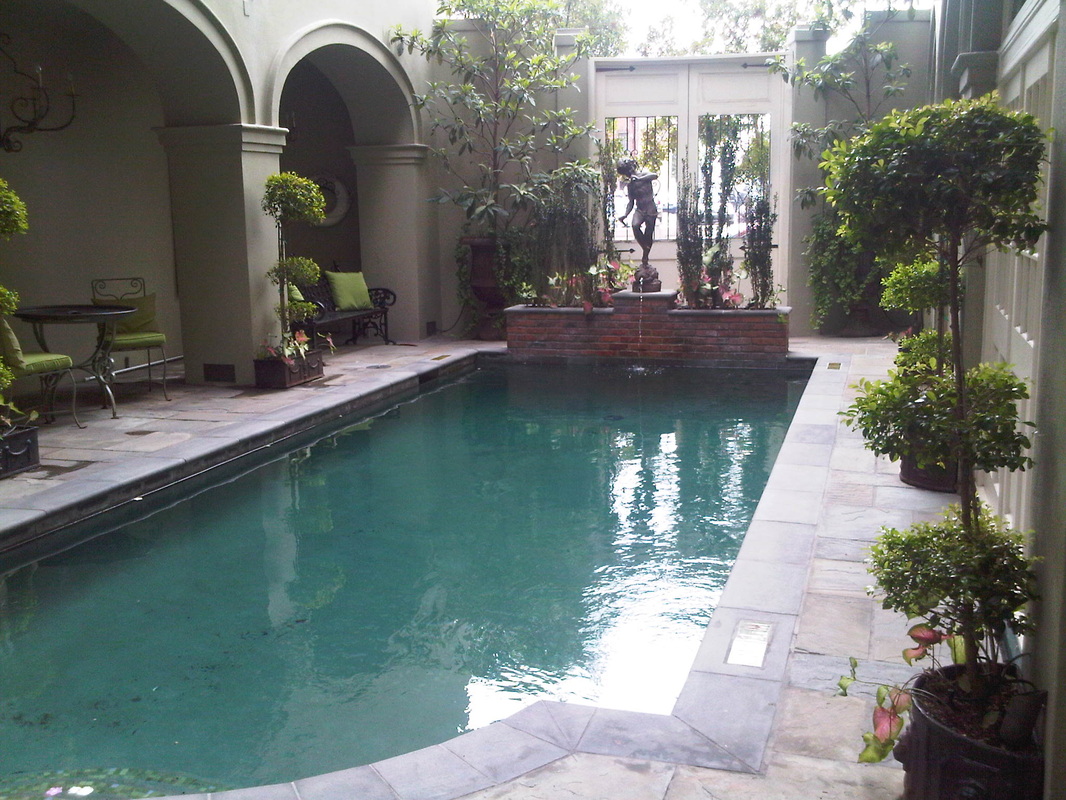 It is a shame I have to share my wedding anniversary (21 years today) with another event that has yielded few celebratory results, The PATRIOT Act, which was wedded to American law enforcement ten years ago today.
My own marriage has produced much that is worth celebration. That is due mostly to the man who many of my friends refer to as Saint John. A single father for a time before we met, my husband learned, or perhaps had reinforced what he already knew, that there is no real purpose served in hanging on to ideas of gender division in the home (or anywhere, for that matter). Consequently, he saw it as only right that he would assume most of the domestic duties for the family when I was in graduate school and also working full time. It was a matter of time, not gender. And when my parents moved into my home, no distinction was made in caretaking duties. It was a matter of humanity, not gender. I am proud of my husband for the man he is, more manly because he spends less time worrying about his manliness and more worrying about his person-ness. Each of our anniversaries is a cause for large scale celebration mostly because of my own St. John.
There is less to celebrate in the ten year old law called the PATRIOT Act. The law’s title is an acronym for Uniting (and) Strengthening America (by) Providing Appropriate Tools Required (to) Intercept (and) Obstruct Terrorism. I suppose it had to be an acronym because there would be too much irony if the title was merely the word “patriot,” with all the meaning that word carries. NPR reported this morning that the act has produced an increase in “sneak and peek” searches, those where a judge knows/approves a search but the subject of the search is not informed of the search, but that mostly this provision of the PATRIOT Act is being used for drug and immigration cases. Discounting the Constitution to insure safety from terrorism is dangerous territory already, but doing so to enhance drug and immigration investigations is downright deadly to the spirit written into that Constitution, a truly patriotic spirit. As I see it, those who gave us that document knew that dividing rights among those in America who acted more or acted less patriotic could create as great a danger to America as those from outside who might seek to do us harm. It was a matter of humanity and patriotism and America, not a matter of finding the most expedient means to achieve security and order.
I will celebrate today my good fortune in finding such a loving and enlightened husband, and I will continue to hope our nation finds its way to a more American solution to our problems.
Jack Huston, grandson of director John Huston, as Boardwalk Empire's Richard Harrow. The actor and his character bear a striking resemblance to poet Edward Arlington Robinson. Seems like a fitting time for a biopic of the man who gave us "Richard Cory."
 On this day in 1947, the House Un-American Activities Committee (HUAC) began its investigation of Communist “infiltration” of Hollywood. One week later, the eleven individuals from the original witness list of 43 who stated they would not give evidence against their peers were summoned to testify before the committee. Only one, Bertolt Brecht, answered the committee’s questions. The others would become known as the Hollywood Ten. They were ten screenwriters, directors, and producers who refused to answer the invasive question, "Are you now or have you ever been a member of the Communist Party?" They were ten men who stood up to the Un-American tactics being used to address the Red Scare, ten men who demanded their Constitutional rights at a time when the men charged with protecting those rights ignored their mandate and gave in to their fears.
Those ten were: Alvah Bessie, Objective, Burma!; Herbert Biberman, Slaves and Salt of the Earth; Lester Cole, who began the script for Viva Zapata!, which was completed by John Steinbeck and directed by Elia Kazan. While Cole was imprisoned for one year for his refusal to testify before HUAC, Kazan named names before HUAC; Ring Lardner, Jr., Woman of the Year and M.A.S.H., who famously answered HUAC’s question with, "I could answer the question exactly the way you want, but if I did, I would hate myself in the morning."; John Howard Lawson, Cry the Beloved Country (uncredited); Albert Maltz, The Pride of the Marines; Samuel Ornitz, Circumstantial Evidence; Adrian Scott, the British TV series, The Adventures of Robin Hood; three-time Oscar winner Dalton Trumbo, The Brave One and Lonely Are the Brave; and Oscar nominated director Edward Dmytryk. Crossfire, for which he received the nomination from the Academy, was produced by Adrian Scott. Dmytryk was the only member of the Hollywood Ten to eventually succumb to HUAC’s pressure;
I really had no intention of creating a long list around the Hollywood Ten. But as I was reacquainting myself with their careers, I was struck by the titles of some of their films and other work, made both before and after the HUAC witch hunt. These men created films about the issues all Americans hold dear - patriotism, courage, human rights, and civil rights. Yes, Dmytryk admitted to being a member of the Communist Party, and Lawson was an organizer for the Party, but in 1945 that was not a necessarily separate concept from patriotism. Many artists were sympathetic to the promises of Communism because it addressed their concerns about human rights, which in the wake of WWII and the Nazi atrocities was a concern for everyone.
We don’t worry so much about Communism these days, but that doesn’t mean we should forget the lessons of HUAC. Open dissent and patriotism are not mutually exclusive ideas. Indeed, in America, patriotism was built on dissent. Marine Sgt. Shamar Thomas understood this when he faced down the New York Police last week and challenged their honor in attacking the Occupy Wall Street Protestors. At a time when we have so much to fear, from terrorism to economic devastation, we need to remember how America, through HUAC, responded to their fears and not repeat the mistakes of the past.
 This week in my honors seminar, themed this year on The Grotesque, we watched the pilot episode of HBO’s Carnivale, a show that died too soon because it cost too much to produce (Deadwood anyone?) I showed the students this after having them watch Tod Browning’s 1932 classic Freaks in our last class period. What I hoped for was some discussion or insight into the idea of the Neo-Grotesque, which may or may not be relevant to Carnivale and which is, like The Grotesque itself, a little difficult to nail down. The discussion was exciting. Perhaps the Neo-Grotesque has adapted to a changed sensibility, one that is shaped by PC ideas of what is correct? The point of view guiding our viewing of Freaks was not shaped in this way; thus, we have a film that allows us a more classic response to The Grotesque, one in which pity and laughter can occupy the same space. Contemporary viewers (my class) may feel uncomfortable with their own laughter, but that, too, is a classic Grotesque response. With Carnivale, the story does not invite the pity/laughter reaction in the same way. Indeed, I can think of few or any moments in Carnivale that elicit laughter at all. It belongs to the Romantic Grotesque, which Bakhtin distinguishes for its “somber, tragic sense of individual isolation.” In this aesthetically distinct grotesqueness, we don’t have to suffer the discomfort of laughing at the bearded woman or the reptile man. We don’t have to breach our PC sensibilities. Might this be an aspect of the Neo-Grotesque? If so, then do other contemporary and grotesque texts at which we can’t stop laughing (uncomfortably of course) not belong to the Neo-Grotesque. Is the Neo-Grotesque just a term for any contemporary grotesquerie. Or is the Neo-Grotesque located in another critical place altogether? I’m sure the class discussion will continue ….
Some friends and other folks are upset about the Occupy Wall Street movement because they believe, among other things, that giving tax breaks to our nation’s most wealthy individuals will produce more jobs and, thus, greater wealth for the rest of us. In their eyes, the movement threatens that. I dare say most members of the opposition are neither unemployed nor employed in a profession, like mine, on which much of the economic salvation of the nation has been placed. This year, my colleagues in Wisconsin lost a long battle against the State union busters who saw removing the unions as a first step to cutting education budgets. Washington state teachers went on strike to prevent pay cuts. Alabama is a right-to-work state, so there will be no strikes here against the increases in retirement contributions and retiree health care costs, but the fact remains the state is attempting to cure its budget woes on the backs of its state employees, who are mostly teachers. Even if I weren’t a teacher, I would find this morally and economically wrong.
No, I don’t teach children. I teach mostly young adults who have made a decision to attend college and further their formal educations. These are the same young people who could just as well have chosen to join the military and place their lives on the line for the rest of us. America has always placed a great value on education, and my students made their choices in part because of that promised value. As a professor, then, I am helping to facilitate at least the educational part of the American dream.
And I do it happily and without an expectation that my salary will ever match my qualifications or workload … because my profession was my choice and I went into it with eyes open. Accepting the financial reality of my job is one thing; accepting the philosophic implications of the recent economic attacks on teachers is another. Because that would mean that I would have to accept that the 70 hours per week I average trying to prepare my students to be successful citizens of this nation is worth substantially less than the hours worked by the millionaire who may or may not provide employment to my student, the millionaire who may indeed not even operate his or her business on American soil.
I don’t believe there is any intent among the wealthy to set themselves up against the nation’s educators in this battle. Some of them even see the irony of it all (thank you Warren Buffet). Our leaders who find it easier to open a teacher’s wallet than a millionaire’s are the real problem. Real leadership takes guts, and it doesn’t take much courage to take away from those with little power or even to remove the power they do have so they can’t fight back.
Tax a millionaire today … for a better tomorrow.
I was in New Orleans last weekend for a professional conference, which is the reason for most of my out-of-town adventures these days, and I was reminded of why The Big Easy is my favorite American city. A bit like me, New Orleans encompasses the extremes of human practices. From stately, historically rich architecture to the individual expression of its street performers, the city embraces all that makes up a culture, both high and low. The people in the streets, both the residents and the visitors, seem to adopt the unspoken mantra of New Orleans, that often infuriating idea that “it is what it is.” Open containers of alcohol on the streets? “It is what it is.” Drag queens on the corner? “It is what it is.”
I was having afternoon drinks with friends at the Napoleon House (they serve a mean Pimms Cup-yet another reason to love New Orleans), when a bride in full wedding finery came in with her groom and all her wedding guests. They were awaiting the start of the mini-parade hired for the occasion. Both Tulane and LSU were playing at home on Saturday, and the place was packed. So there stood the bride and her groom, who had clearly handed life management duties over to his new wife long before the nuptials, sipping drinks and getting to know the sports fans sitting at the bar. There was no sense of urgency to vacate seats for the wedding party. “It is what it is.”
Since I came to academia late in life, I sometimes find myself forgetting all the pomp and protocol that goes along with the job. I know my office is supposed to be stacked to the ceiling with books, but I’d rather be surrounded by action figures and dancing rabbi toys (and Sopranos snow globes and Star Trek transporter rooms!). And if I added more shelves for the books, I’d have to remove my framed autographs of Ernest Borgnine and Billy Bob Thornton and the cast of Buffy the Vampire Slayer and the cast of Mad Men! But there is balance. My books may not be stacked to the ceiling, but Wordsworth and Eliot are lovingly shelved alongside the television books and the folklore books, which all, like the people in New Orleans, create a kind of natural wholeness that exists no place else in this country. My world may not always make sense, but, like The Big Easy, “it is what it is.”
My friends and colleagues have been blogging for years, but I have remained timid. Most people who know me would say I am outspoken and extroverted, and I am, unless we’re talking about communicating with words on paper. That is plenty ironic as I make my living in part by putting words on paper. Professionally, I am a teacher and scholar who writes about great television or great books, and I am sometimes fortunate enough to have that writing published (see my Burk’s Books page on this web site). Blogging is a different species of writing altogether. It is much like creative writing, for which I learned many years ago I did not have thick enough skin. But with age, and I have plenty of that, I have come to fear less and less and at the same time I have more and more to say. So if you stop in, you might find me ranting about the poor sense of television networks or the even poorer sense of politicians. Or you might find me talking about a student’s amazing insight, or the frustrations of academic bureaucracy. You might even find me talking about my ongoing love affair with the city of New Orleans ... whatever the subject, I hope it will contribute a little something to your day.
|








 RSS Feed
RSS Feed